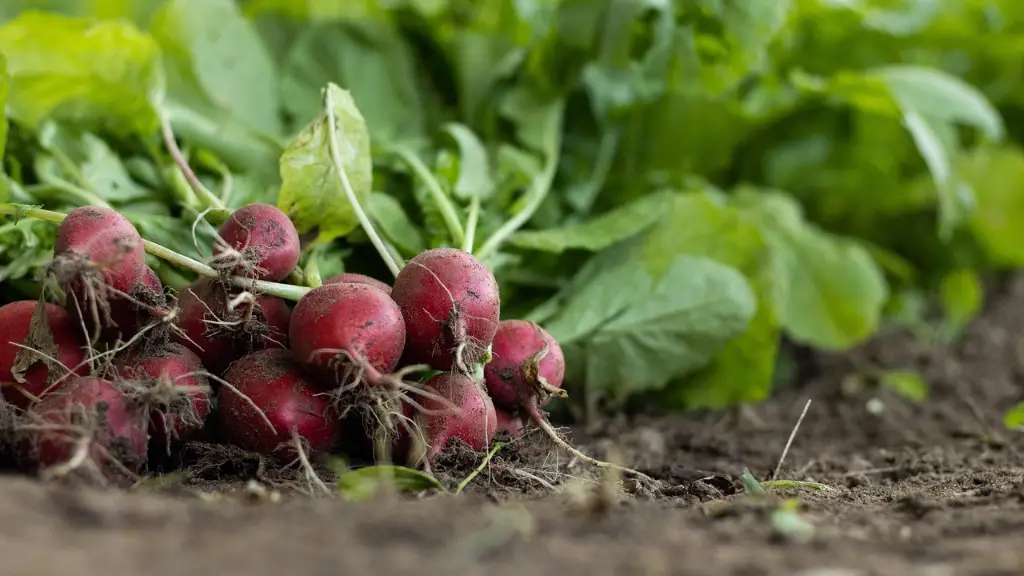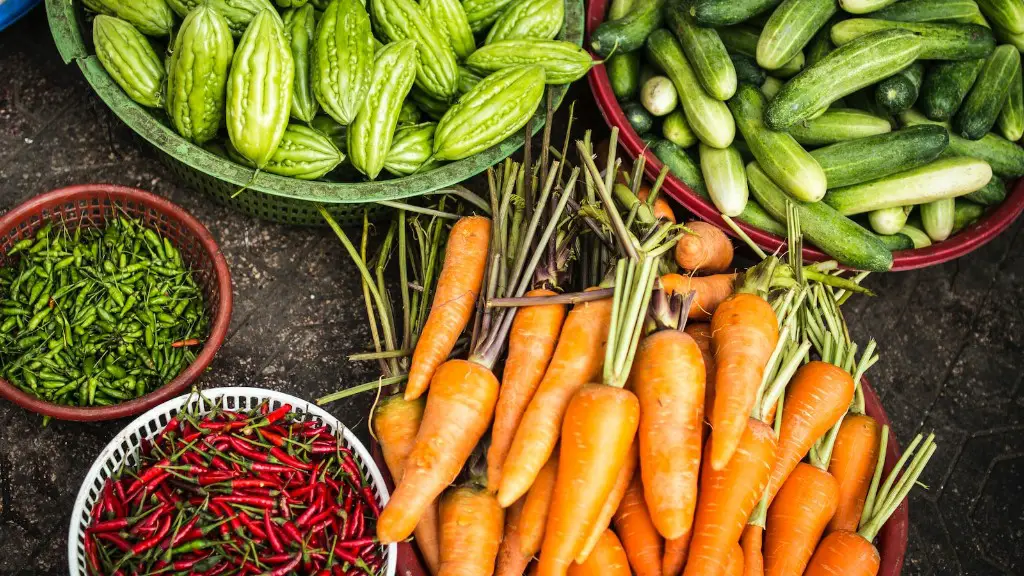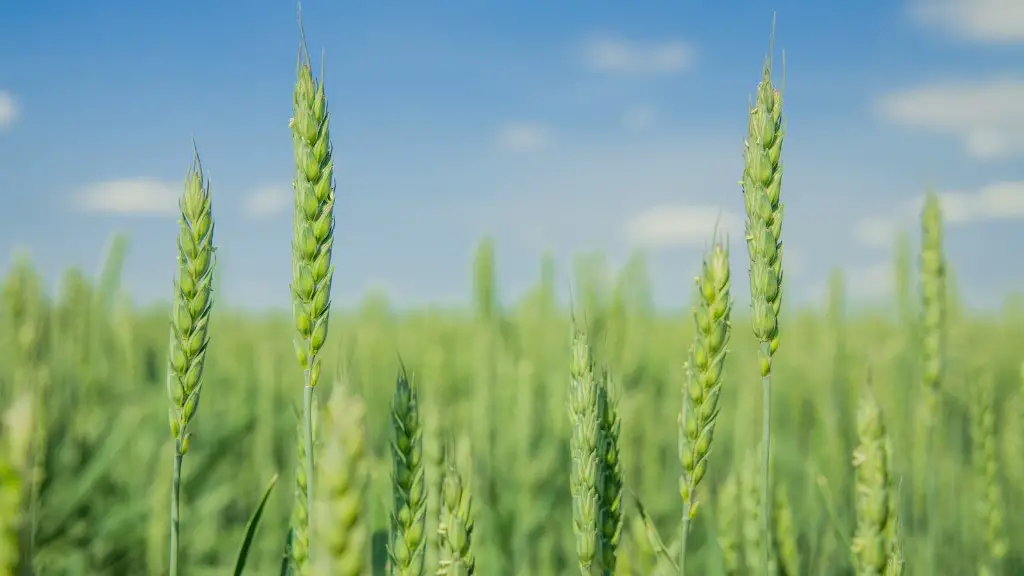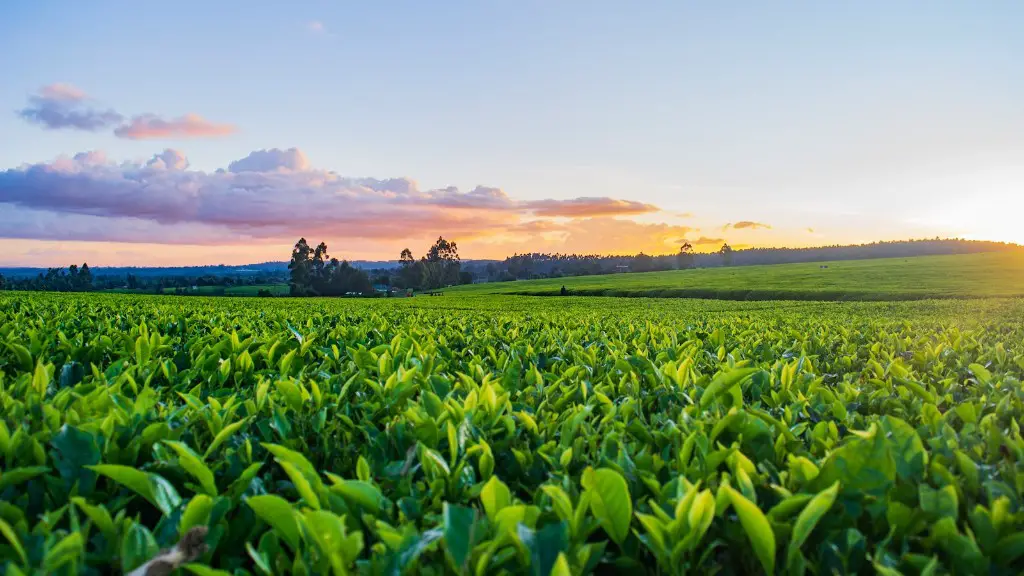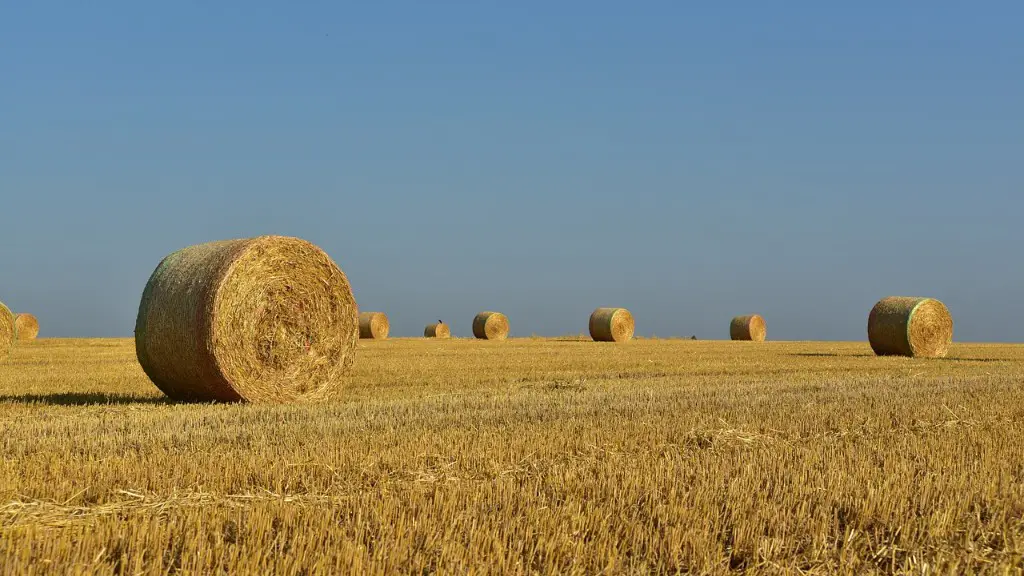Agriculture is the backbone of the Indian economy and is one of the largest contributors to our GDP. It employs more than half of our country’s workforce and is a primary source of livelihood for many of our rural population. India is an agrarian country and our agricultural practices date back centuries. They have been passed down from generation to generation and have played a crucial role in shaping our culture.
Agriculture is vital for our food security and self-sufficiency. It is also a key driver of economic growth and poverty alleviation. In India, agricultural productivity has been increasing steadily over the years, thanks to advances in technology, improved access to inputs and credit, and better irrigation facilities. However, there is still room for further improvement, particularly in terms of raising productivity levels in rainfed areas.
There are many challenges that our farmers face, such as climate change, water shortages, and diminishing land resources. But despite these challenges, agriculture continues to be the mainstay of the Indian economy.
Agriculture is very important in India. It is the main occupation of more than 60% of the population and is the largest source of livelihood for most rural families. It plays a crucial role in India’s economy, contributing around 15% to the country’s GDP. Agriculture also provides employment to a large section of the Indian workforce.
What is importance of agriculture in India?
Agriculture is the most significant source of income for both the central and state governments in India. The government earns substantial revenue from land revenue, and the movement of agricultural goods helps generate revenue for the Indian railways. This revenue helps the government in meeting its expenditure and developmental goals.
Agriculture is one of the most important aspects of human civilization. It is the main source of raw materials for industry and trade. It also plays a big role in a nation’s revenue. Agriculture provides employment for a large number of people. It is also crucial to a country’s development. Agriculture can also help heal the environment.
Why the agriculture is important
Agriculture is the main source of food and fabrics for the majority of the world’s population. Cotton, wool, and leather are all agricultural products that are used to create a variety of clothing and other items. Agriculture also provides wood for construction and paper products. The methods used to grow and harvest these products may vary from one region to another.
Agriculture is one of the most important sectors of the Indian economy. It contributes 16% of the overall GDP and accounts for employment of approximately 52% of the Indian population. Rapid growth in agriculture is essential not only for self-reliance but also to earn valuable foreign exchange.
The government has been taking various initiatives to promote growth in the agricultural sector. These include providing financial assistance to farmers, investing in infrastructure and R&D, and creating an enabling environment for private sector investment.
The agricultural sector has great potential for growth and development. With the right policies and investments in place, it can make a significant contribution to the economy and the welfare of the people of India.
Why is India called an agricultural country?
India is an agriculturally important country. Two-thirds of its population is engaged in agricultural activities. Agriculture is a primary activity, which produces most of the food that we consume. Besides food grains, it also produces raw material for various industries.
Farming is a great way to improve your health and well-being. It is challenging and stimulating work that provides a source of income in rural areas. Farm work also helps develop younger generations by providing them with skills and knowledge they can use in their future careers. Additionally, farming can help the environment thrive by providing healthy food and natural resources.
Why is agriculture important for Indian economy give three reasons?
Agriculture is the mainstay of our economy and it is the principal source of livelihood for our people. It is the backbone of our country’s development and it is crucial for our future prosperity. We must therefore, continue to invest in agricultural development so that we can ensure our food security and raw material needs.
Agriculture plays an important role in the economic development of a country. It not only provides food for the population but also supplies raw materials for industries. agriculture provides employment for a large section of the population and is a source of income for many people. It also contributes to the export earnings of a country.
Why is agriculture important for a country
The agricultural sector is one of the most important sectors of the economy, contributing to the country’s GDP, food security, employment and poverty alleviation. It is estimated that the sector contributes around 192 percent to the GDP and provides employment to around 385 percent of the labour force. The sector is also an important source of foreign exchange and export earnings. The government has been implementing various programmes and initiatives to support the sector and ensure its growth and development.
There are a variety of crops and livestock products that are valuable around the world. Chicken, maize, wheat, and soybeans are some of the most valuable, with gross production values in the billions of dollars. The country with the highest gross production value for each of these items is listed in the table.
Is India an agricultural economy?
India plays a major role in the agriculture sector worldwide. It is the primary source of livelihood for about 58% of India’s population. India is a major producer of food grains, cereals, fruits, vegetables, milk, and livestock. The country is also one of the world’s leading exporters of agricultural products.
India is an important producer of wheat and rice, two of the world’s major food staples. India is currently the world’s second largest producer of several dry fruits, agriculture-based textile raw materials, roots and tuber crops, pulses, farmed fish, eggs, coconut, sugarcane and numerous vegetables.
The country’s large agriculture sector is one of the major drivers of the economy, contributing significantly to employment, food security and export earnings. In recent years, the sector has been facing a number of challenges, including climate change, water scarcity, declining soil fertility and an increasing incidence of pests and diseases.
Despite the challenges, the agriculture sector in India continues to play a vital role in the country’s economy and is likely to continue doing so in the years to come.
Does India have good agriculture
India is one of the world’s leading producers and consumers of a range of crop and livestock commodities. The country is a major producer of rice, wheat, cotton, maize, livestock, and a variety of other crops and livestock products. India is also one of the world’s largest importers of food and agricultural products.
The agriculture sector is one of the most important industries in the Indian economy. In terms of employment, the agriculture sector provides livelihood to over 151 million people. Approximately 60 percent of the Indian population works in the sector, contributing about 18 percent to India’s GDP. The sector is thus crucial to the country’s economic and social development.
However, the sector is also beset with a number of challenges. Small and marginal farmers, who make up the majority of the sector, often lack access to quality inputs and credit. They also face the brunt of climate change, with droughts and floods becoming more frequent in recent years. These challenges have led to farmer protests across the country in recent years, highlighting the need for greater government support for the sector.
The government has taken a number of steps to address these challenges, such as increasing the Minimum Support Price (MSP) for crops, providing crop insurance, and establishing a dedicated fund for the agriculture sector. However, more needs to be done to make the sector more sustainable and productive.
What is the positive impact of agriculture?
While agriculture can have negative impacts on the environment, it can also have positive impacts. Agriculture can trap greenhouse gases within crops and soils, or mitigate flood risks through the adoption of certain farming practices. These positive impacts can help offset the negative impacts of agriculture and make it a more sustainable practice.
The very poorest people in society benefit the most from agricultural growth. This is because agricultural growth increases the demand for labor, which in turn increases the probability of getting a job. Additionally, agricultural growth may also lead to increased wages, which further increases the income that can be earned from selling labor.
What is the role of farmers in India
Farmers play a vital role in the economy of a country. They are the driving force behind the production of agricultural goods and products. A large percentage of the population is involved in farming, either directly or indirectly. This sector provides employment to a large number of people and is a major contributor to the GDP of the country. Every citizen of the country is dependent on the agriculture products produced by farmers.
India is the world’s largest producer of milk, pulses and jute. India ranks as the second largest producer of rice, wheat, sugarcane, groundnut, vegetables, fruit and cotton. India is also one of the leading producers of spices, fish, poultry, livestock and plantation crops.
Conclusion
Agriculture is critical to the Indian economy, accounting for 17% of GDP and employing more than 50% of the country’s workforce. India is the world’s second largest producer of food after China, and is projected to become the top producer by 2030.
There are several reasons for agriculture’s importance in India. First, the country has a large population that is expected to grow to nearly 1.5 billion by 2030. This means that there will be an increasing demand for food. Second, India is a predominantly rural country, with nearly 70% of the population living in villages. This means that a large proportion of the population is directly or indirectly dependent on agriculture for their livelihoods.
Third, agriculture is an important source of foreign exchange earnings for India. The country is a leading exporter of rice, wheat, dairy products, and spices. And, finally, agriculture provides raw materials for India’s large food processing industry which is one of the fastest growing sectors in the country.
So, there are many good reasons why agriculture is important in India. The sector plays a key role in the country’s economy and is vital for the livelihoods of millions of people.
Agriculture is important in India for a number of reasons. It is a major source of employment, providing livelihoods for millions of people. It is also a major source of food for the country, with over 60% of the population relying on agriculture for their main source of income. In addition, agriculture is a vital sector of the economy, contributing around 15% of the country’s GDP.
